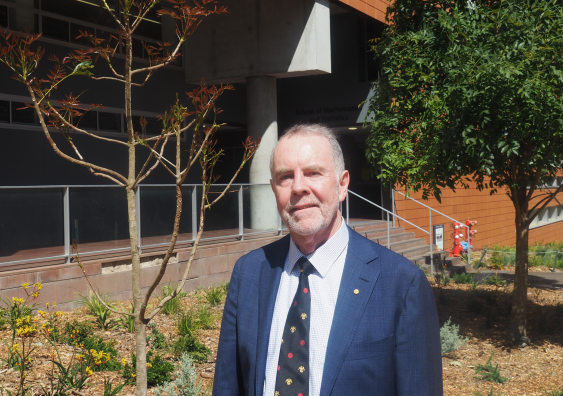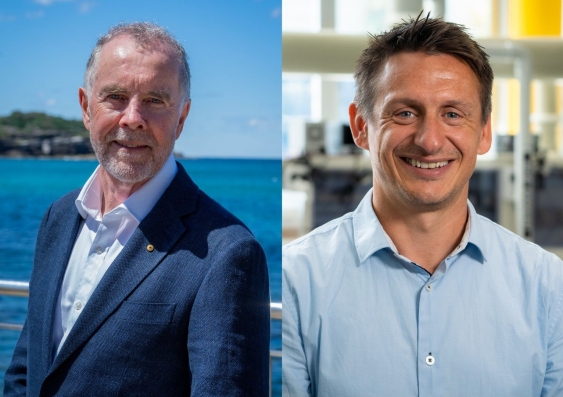Trailblazing UNSW oceanographer awarded Alfred Wegener Medal
2024-11-15T10:30:00+11:00

Prof. McDougall’s research has positioned Australia at the forefront of ocean physics and climate research.
Photo: Supplied.
Trevor McDougall is regarded as the world’s foremost authority on ocean thermodynamics, and an international leader in physical oceanography.
Emeritus Scientia Professor Trevor McDougall has been awarded the European Geosciences Union’s (EGU) 2025 Alfred Wegener Medal for his groundbreaking contributions to the understanding of ocean dynamics and their key role in the climate.
It’s the first time the medal has been awarded to an Australian researcher, and only the third time an oceanographer has received the award in its 42-year history.
Prof. McDougall said he believed the honour affirms the importance of fundamental science.
“Applicable science is built on a range of advances in science and engineering across several disciplines. Not everyone in a field of science needs to be conducting basic or fundamental research but sometimes this type of research throws up surprisingly impactful results that can be readily adopted by the wider field,” he said.
“This award is recognition of that, and also of its significance in the field of climate science broadly.”
An internationally renowned scientist, Prof. McDougall’s work has focused on the ocean’s role in climate, ocean mixing processes and the thermodynamics of seawater. His discoveries have led to significant improvements in the modelling used to assess the effects of climate change. He’s also revealed four new ocean mixing processes and advanced new methods of analysing oceanographic data.
The academic from UNSW Science completed a Mechanical Engineering degree before changing focus to study the ocean while doing a postgraduate degree in Applied Mathematics at the University of Cambridge in the 1970s.
“The topic of my PhD was in an oceanographic area, and I’ve stayed in the field of physical oceanography ever since. Shortly after completing my PhD, global warming became a well-known and major societal concern,” Prof. McDougall said.
He’s received numerous awards and honours during his career, most recently being named the 2023 NSW Premier’s Prize for Scientist of the Year and receiving the Prime Minister’s Prize for Science in 2022.
UNSW Dean of Science Professor Sven Rogge congratulated Prof. McDougall on his latest success.
“Trevor’s work has positioned Australia at the forefront of ocean physics and climate research so it’s fitting to see him honoured with the most prestigious award granted by the EGU in the fields of atmospheric, oceanic and hydrological research,” Prof. Rogge said.
“His dedication to advancing ocean modelling techniques has broadened the world’s understanding of the coupled atmosphere-ocean-ice climate system, while also unveiling new avenues for future research.”
Prof. McDougall’s advice for younger scientists is to explore the more challenging parts of their fields.
“Time spent exploring off-beat ideas might seem like an indulgence but sometimes pursuing such unpopular topics will lead to important fundamental advances in the field,” he said.
“Allow yourself to be still, to be constructively idle.”
Media enquiries
For enquiries about this story, please contact Stefanie Menezes.
Tel: : +61 2 9065 3225
Email: s.menezes@unsw.edu.au






